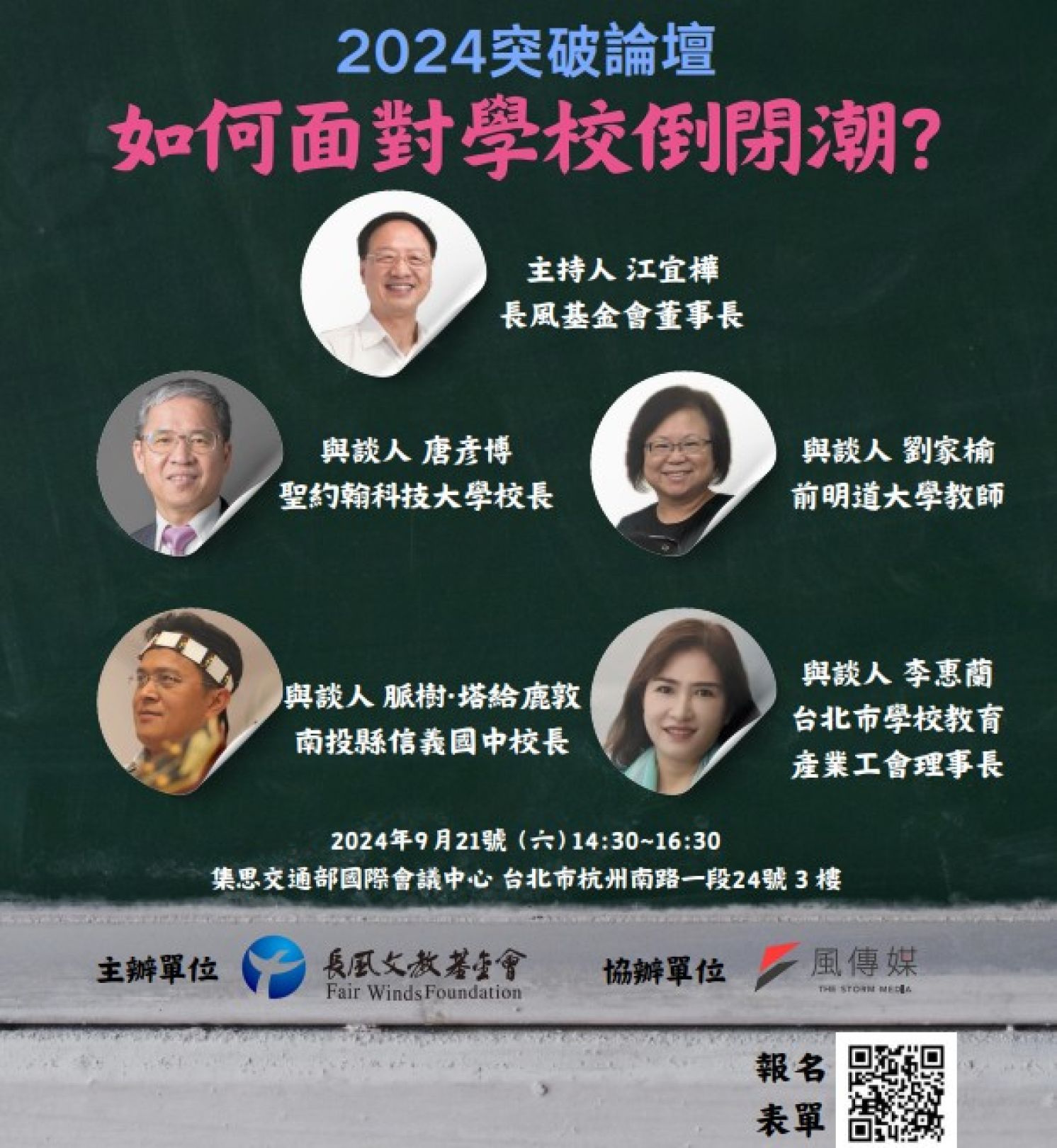Focusing on key issues pertaining to Taiwan's sustainable development, discussion of proposals for breaking through current dilemmas are held in the form of a public of a public forum. young leaders, top research teams, and social practitioners will be the panelists of the forum to advocate rational discussion and collaborative action.
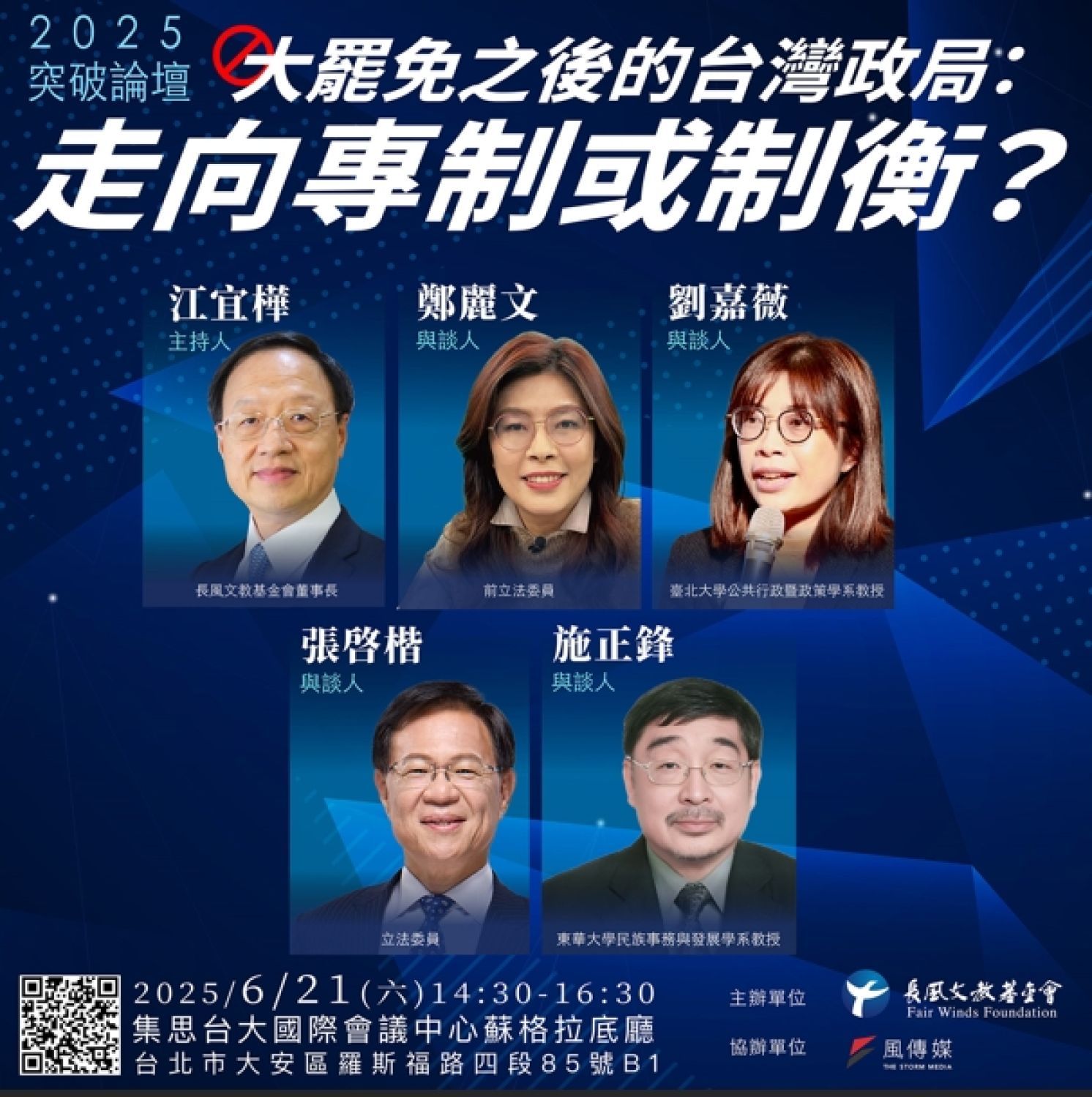
Breakthrough Forum 2025: Taiwan’s Political Landscape After the Mass Recall: Toward Authoritarianism or Checks and Balances?
As voting begins for the mass recall launched by the Democratic Progressive Party (DPP) against Kuomintang (KMT) legislators, Taiwan faces an unprecedented democratic event: a ruling party initiating a wholesale recall of opposition lawmakers. More critically, the outcome of the recall and by-elections could reshape Taiwan’s political landscape. If the DPP succeeds in flipping the legislature from minority to majority, will the Lai administration grow more authoritarian? Conversely, if the KMT–TPP alliance retains its majority, can it effectively check the executive branch and prevent President Lai from overreach?
Details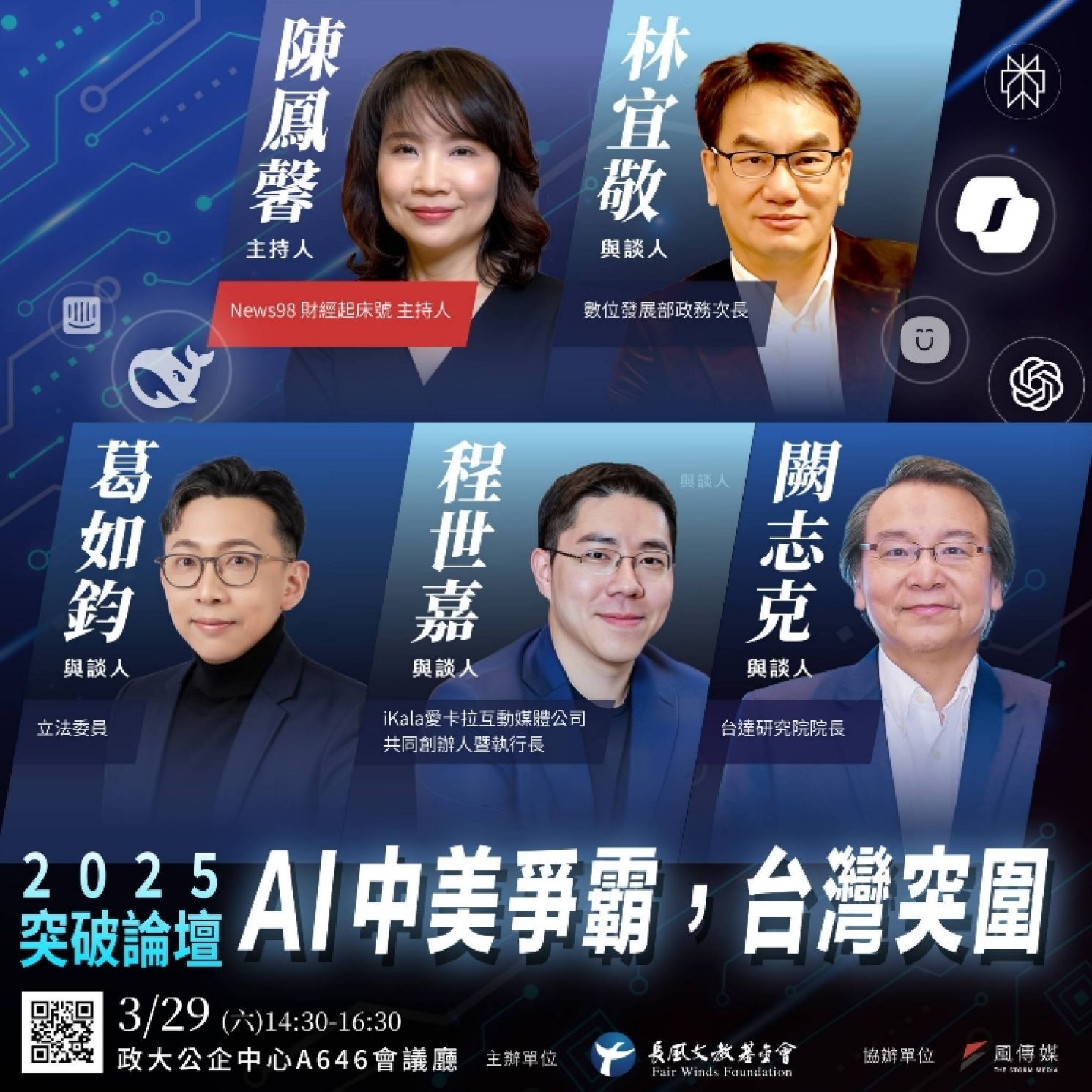
2025 Breakthrough Forum: U.S.-China AI Rivalry and Taiwan’s Way Forward
In early 2025, Chinese startup DeepSeek burst onto the global stage with its low-cost, high-performance AI capabilities, shaking up the tech world and posing a significant challenge to America's dominant AI giants.
Details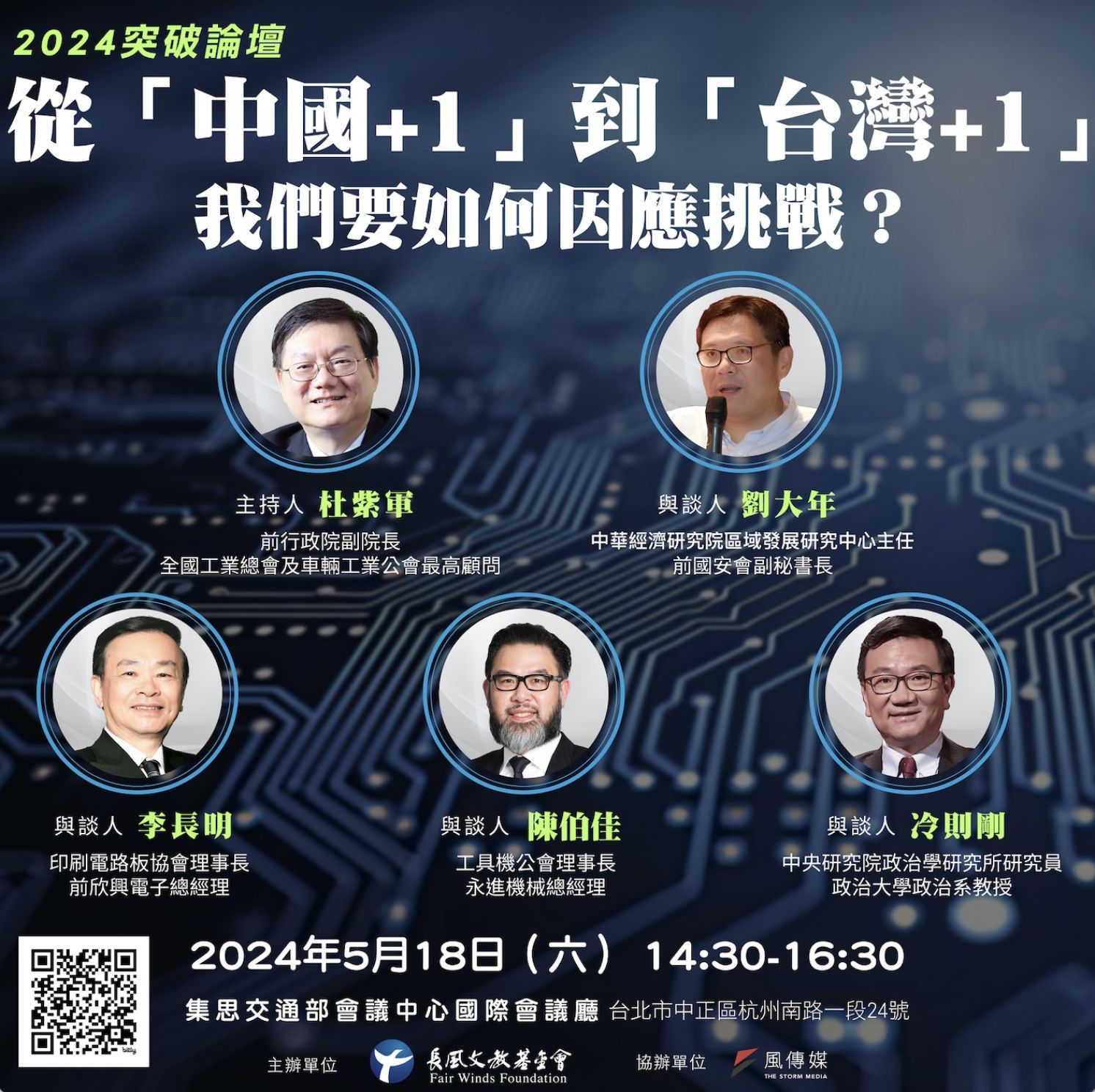
2024 Breakthrough Forum: From "China +1" to "Taiwan +1": How Should We Respond to the Challenge?
Since the outbreak of the U.S.-China trade and tech wars, countries have responded to U.S. policies and sought to reduce dependence on mainland China by looking for alternative production bases. This risk-diversification strategy is known as the “China +1” economic approach.
Details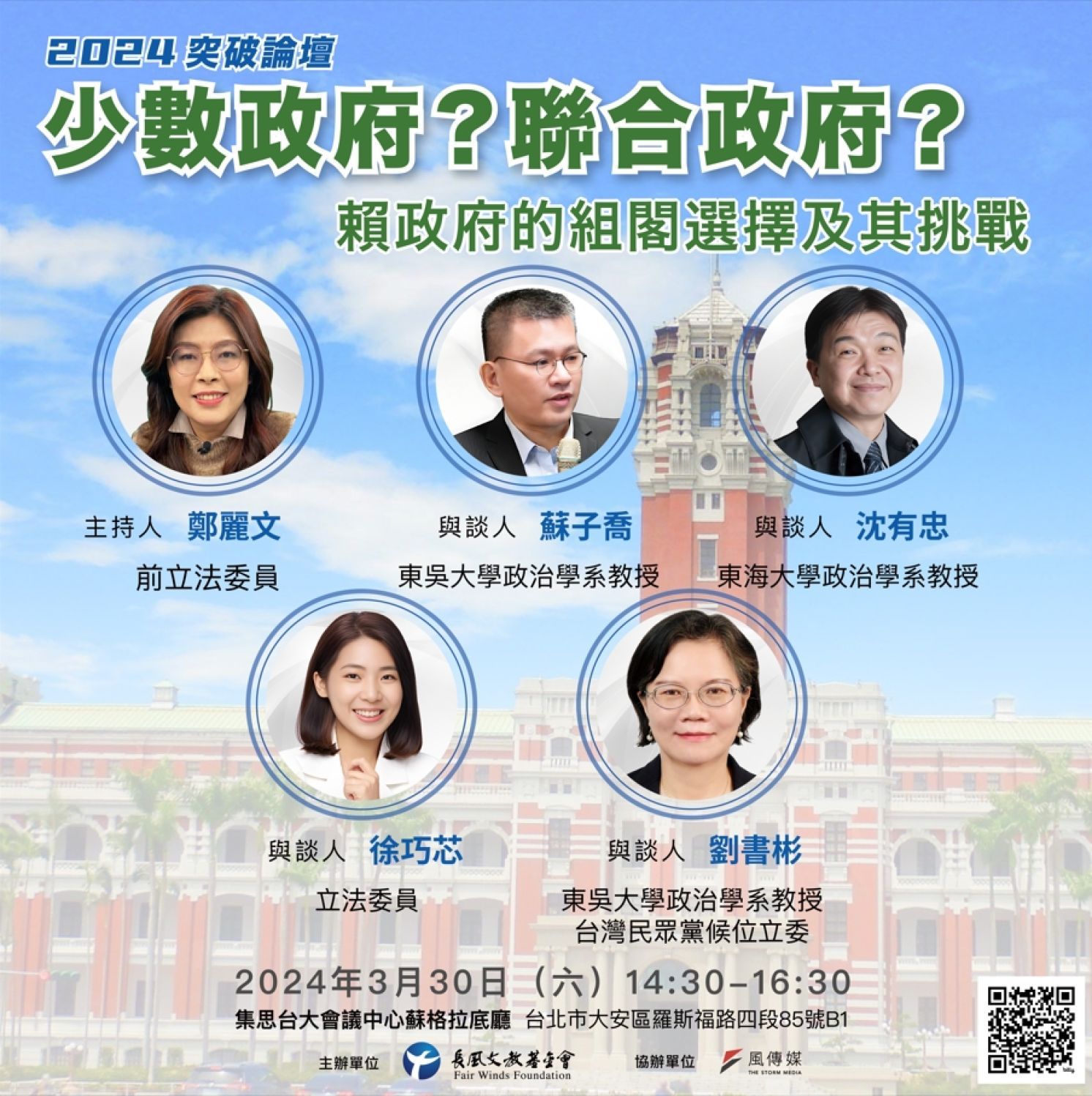
2024 Breakthrough Forum: Minority Government? Coalition Government? Cabinet Formation and Challenges Facing the Lai Administration
In the 2024 elections, Democratic Progressive Party (DPP) candidate Lai Ching-te was elected president, but did not secure a majority of votes. Meanwhile, the Legislative Yuan saw the KMT win the most seats, though none of the three major parties gained a majority. Faced with this dual-minority scenario, how should President-elect Lai Ching-te appoint the premier and assemble his cabinet? How can his administration secure legislative support for budgets, bills, and personnel appointments? With cross-strait tensions mounting and domestic political confrontation between the presidency and legislature escalating under a minority government, the Lai administration will face formidable challenges.
Details
Disaster of Taiwan's "Bilingual Nation 2030": An All-Lose Dinosaur Policy
The incumbent administration is strongly pushing for the “Bilingual Nation 2030” policy, which requires all levels of schools to quickly move towards the goal of “using English as the teaching language for all subjects”. From sports, music to social studies, science, and mathematics, no subject will be spared. This policy has not only caused widespread misery in the teaching field but will also seriously harm the country’s language and true competitiveness. This will be a national security-level disaster because competitiveness is not “English ability”, but thinking ability, knowledge foundation, and creativity, and these conditions can only be obtained through proficient use of the local language. How can we stop this erroneous policy that is about to cause Taiwan’s education to collapse and its future to be worrying?
Details
The Impact and Challenges of Generative AI
ChatGPT has caused a sensation around the world, drawing high attention to the breakthrough development of “generative artificial intelligence”. In the future, AI robots will be able to create new content, from songs, paintings, poetry, novels, to news reports, copywriting, marketing analysis, and school assignments, all of which can be easily produced. The enhancement of search engine retrieval efficiency has also triggered comprehensive competition in related industries. This development seems to bring many conveniences, but it is also full of various hidden dangers.
Details
Impact of Military Service System Reform: How Long Should Young People Serve? How Should the Military Prepare for War?
Taiwan has undergone several changes in the duration of military service for conscripts since 2004. It was originally two years of compulsory military service, which was then shortened to one year. Later, with the “recruitment parallel” system, conscripts were changed to the current four-month military training service. However, due to the rapid deterioration of cross-strait relations in recent years, the government has reportedly intended to change the four-month military training service to one or two years of compulsory military service.
Details
Virtual World, Real People:Reflections on Human Rights in the Metaverse
The “Metaverse” wave is rising, virtual reality is constantly innovating, wearable devices are combined with personal life applications, and they have officially entered our private space and public domain, collecting a large amount of personal biological characteristics and behavioral data. Our privacy rights are being violated silently.
Details
Democracy Under the Rampage of Cyber-Armies
The core expectation of democracy is that people can make rational choices based on correct information. To realize this expectation, one of the basic engineering projects of democracy in institutional design is media diversity and openness, which is not controlled by the government or any political party, to protect freedom of speech and the space for public forums. Therefore, the media is often referred to as the “fourth power”, responsible for defending the people’s right to know the “truth”.
Details